Overview
The Aviation program at Mount Allison is one of only a few in Canada that allows you to earn an undergraduate degree that incorporates flight and ground school training.
Aviation is offered through a partnership with MFC Training, one of the leading flight training establishments in North America.
At a Glance
Curriculum
Before you can start your flight training, you must complete your first year at Mount Allison.
In first year you'll take introductory courses in your chosen degree, either:
- Bachelor of Arts
- Bachelor of Commerce
- Bachelor of Science
Then to begin your flight training you must:
- have second-year standing (have earned a minimum of 24 credits)
- obtain a Transport Canada Category 1 medical certificate
- pass a formal English language proficiency test mandated by Transport Canada, and administered by MFC Training
You'll continue to take three courses per term on campus and ground school training, while one-on-one instructor training and flying takes place at the MFC Training campus.
As an Aviation student, you'll:
- complete more than 200 hours of flying
- receive hundreds of hours of ground training
- learn about navigation, airplane instruments, aviation regulations, and weather
In addition to your bachelor's degree, Aviation students graduate with:
- a Commercial Pilot Licence (CPL)
- a multi-engine class rating
- a Group 1 instrument rating
You may also qualify to write the Airline Transport Pilot Licence exam.
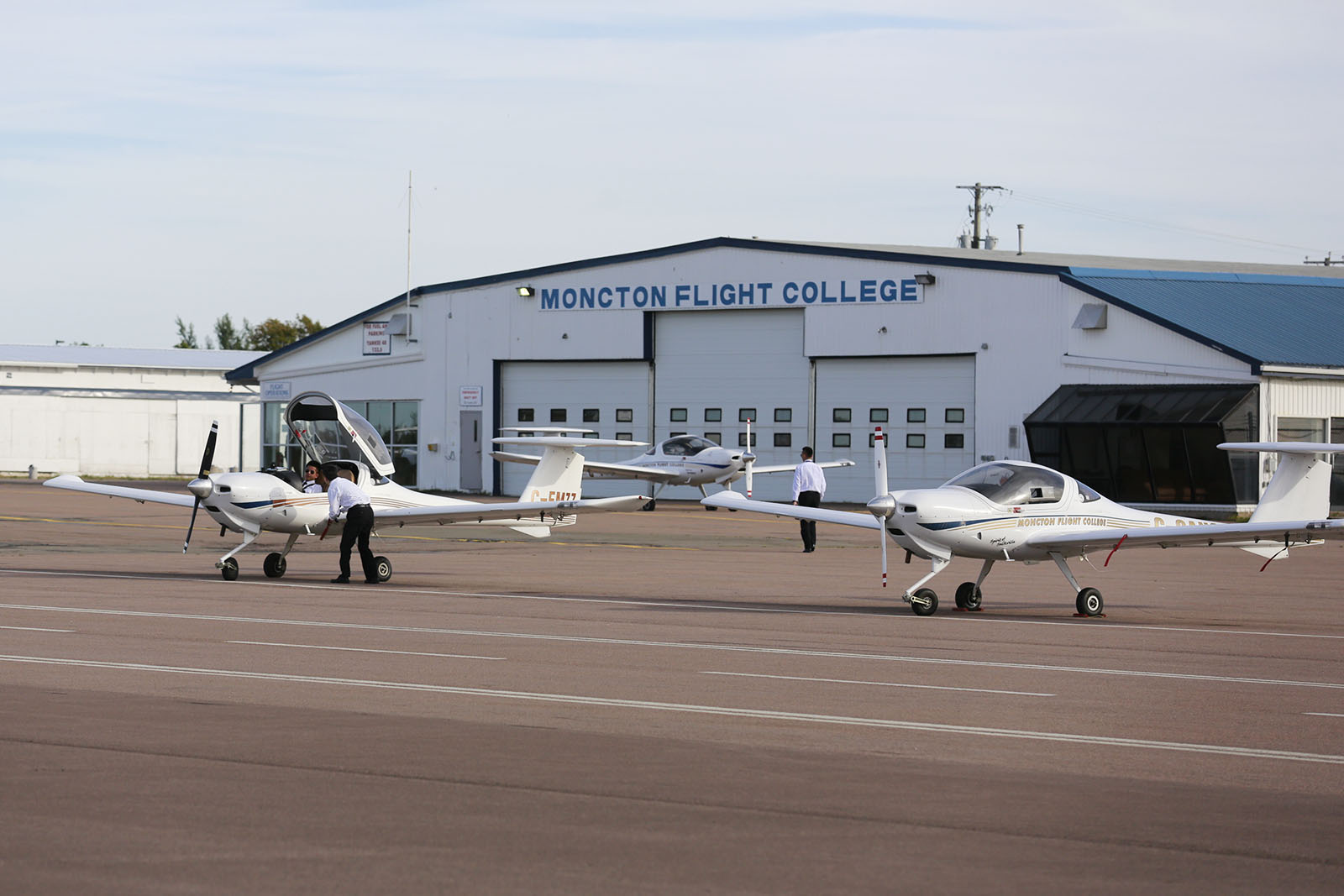
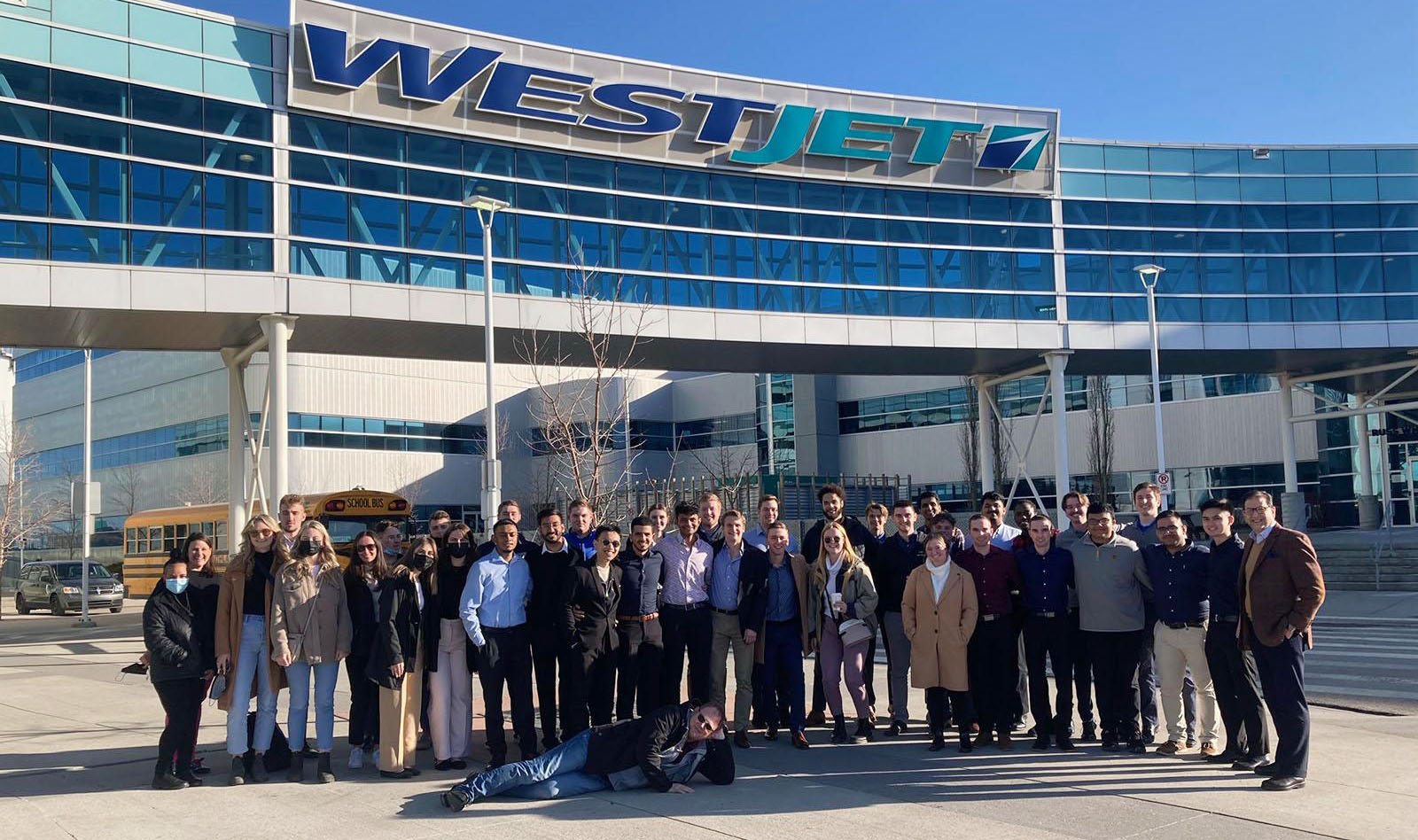
Degree options
At Mount Allison, Aviation students have the option of doing a degree in Arts, Commerce, or Science, depending on your interests.
Bachelor of Science (BSc)
Our Bachelor of Science with a major in Aviation allows you to combine your flight training with in-depth studies in subjects related to the field of aviation in the Faculty of Science ― such as geography, environmental science, mathematics, physics, and computer science.
A BSc degree with a major in Aviation (120 credits):
- Major in aviation (78 credits; includes 36 credits from flight training requirements)
- Minor program (24 credits)
- Distribution requirements (18 credits)
Bachelor of Commerce (BComm)
Our Bachelor of Commerce ― Aviation in conjunction with MFC Training is designed for students who wish to combine their aviation training with business studies.
As a Commerce student, you'll study a variety of business areas such as accounting, finance, marketing, and management ― giving you a strong foundation in the key disciplines of management education.
For a BComm degree (120 credits):
- Commerce core requirements and Commerce electives (66 credits)
- Distribution requirements in arts and letters, and humanities + complementary courses in geography and environment (18 credits)
- Flight training requirements (36 credits)
NEW! Bachelor of Arts (BA)
Our Bachelor of Arts ― Aviation in conjunction with MFC Training is designed for students who wish to combine their aviation training with studies in arts and humanities, and social sciences.
Aviation students pursuing a Bachelor of Arts degree must complete a major in any discipline offered for a BA degree (no minor required).
For a BA degree (120 credits):
- Arts major (60-72 credits)
- Electives and distribution requirements (24-36 credits)
- Flight training requirements (36 credits)
NOTE: It is strongly recommended that students pursuing the Bachelor of Arts option reach out to advisor@mta.ca before the Fall term of their first year to discuss course selection, major options, and timeline of completion.
Not sure about the difference between a major, a minor, an honours, and a certificate?
Careers
Your degree from Mount Allison will stand out.
Mount Allison has been recognized by Maclean's as the top primarily undergraduate university in Canada more times than any other university.
In addition to your bachelor's degree, Aviation students graduate with:
- a Commercial Pilot Licence (CPL)
- a multi-engine class rating
- a Group 1 instrument rating
You may also qualify to write the Airline Transport Pilot Licence exam.
Popular career paths for Aviation graduates include:
- airline/corporate/charter/cargo pilot
- military/search-and-rescue pilot
- aerial firefighting pilot
- traffic/news pilot
- flight instructor
- agricultural operations/wildlife services pilot
- aerial photographer
- safety inspector
- air traffic controller
- airport manager
Alumni Spotlight
Conor Anson-Cartwright ('13)
Bachelor of Science, Aviation
Fighter Pilot, Royal Canadian Air Force
"For those aspiring to become a pilot as a career, it is the best option. Having a science degree also keeps my doors wide open for potential future endeavours."
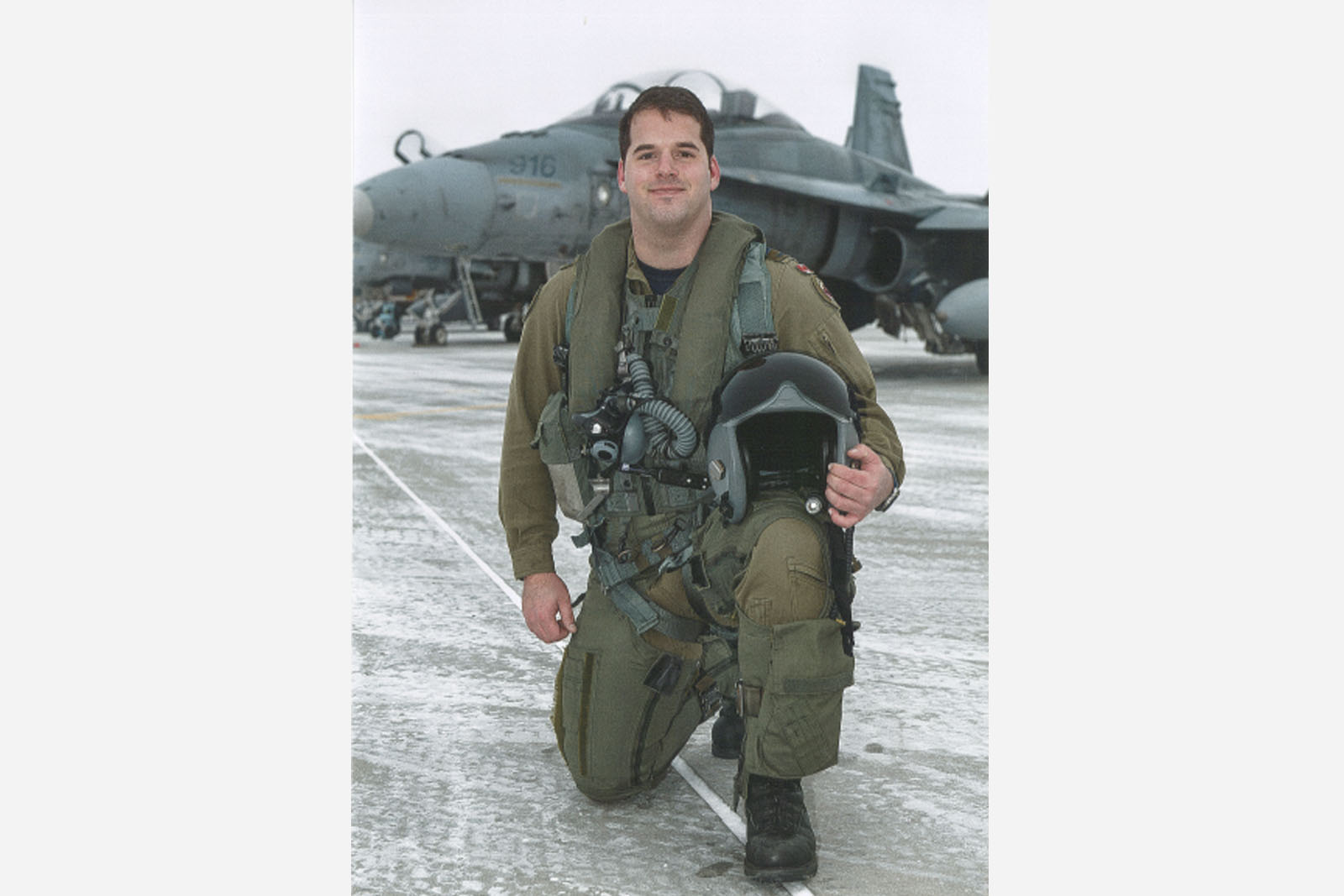
Testimonials
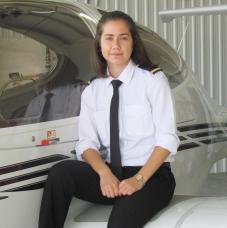
This program is very unique and allows students to have many amazing opportunities. I received my commercial pilot’s license while pursuing studies in biochemistry at the same time. I had the opportunity to compete in the Webster Trophy competition for amateur pilots as well as I received a grant to research Pilot Behaviour in Flight Training Unit. This degree has opened many doors that span the aviation and the scientific fields.
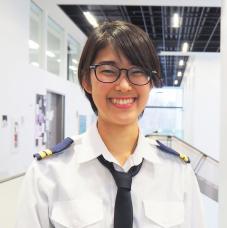
The small and warm environment was a perfect fit for me. This is a great place to build strong networks as we move into the professional aviation industry. If you have a strong passion to be a pilot and enjoy a flexible schedule, this program is for you!
Extras
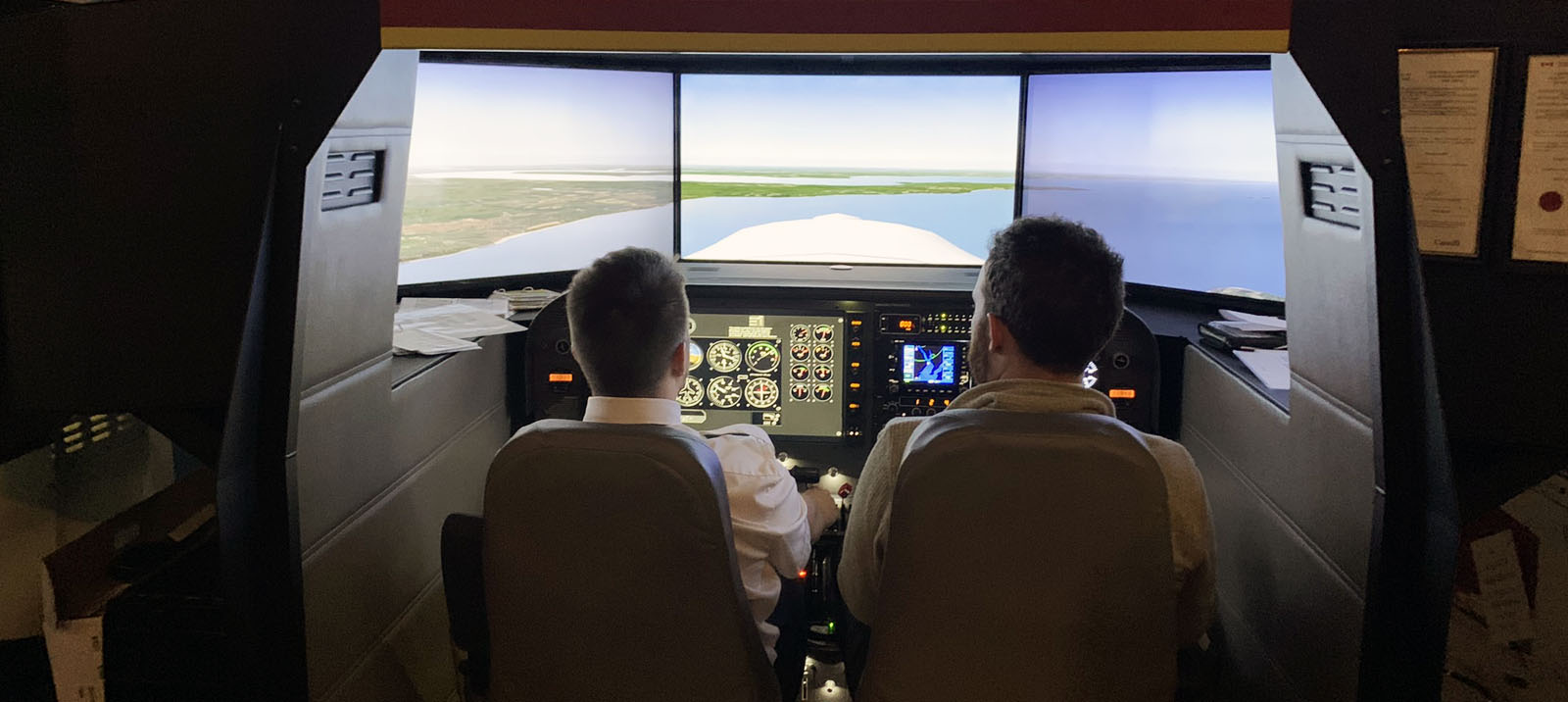
Flight training schedule
In first year you take a full program of courses in either Arts, Commerce, or Science at Mount Allison in Sackville.
In subsequent years you'll continue to take courses at Mount Allison, including ground school classes. Your flight training takes place at the MFC Training campus in Dieppe, an easy 25-minute drive from Sackville.
You're required to provide your own transportation between the two campuses.
The program may require training time outside the regular September to April academic year. You may wish to speak with the program advisor to discuss the time commitment required for this program.
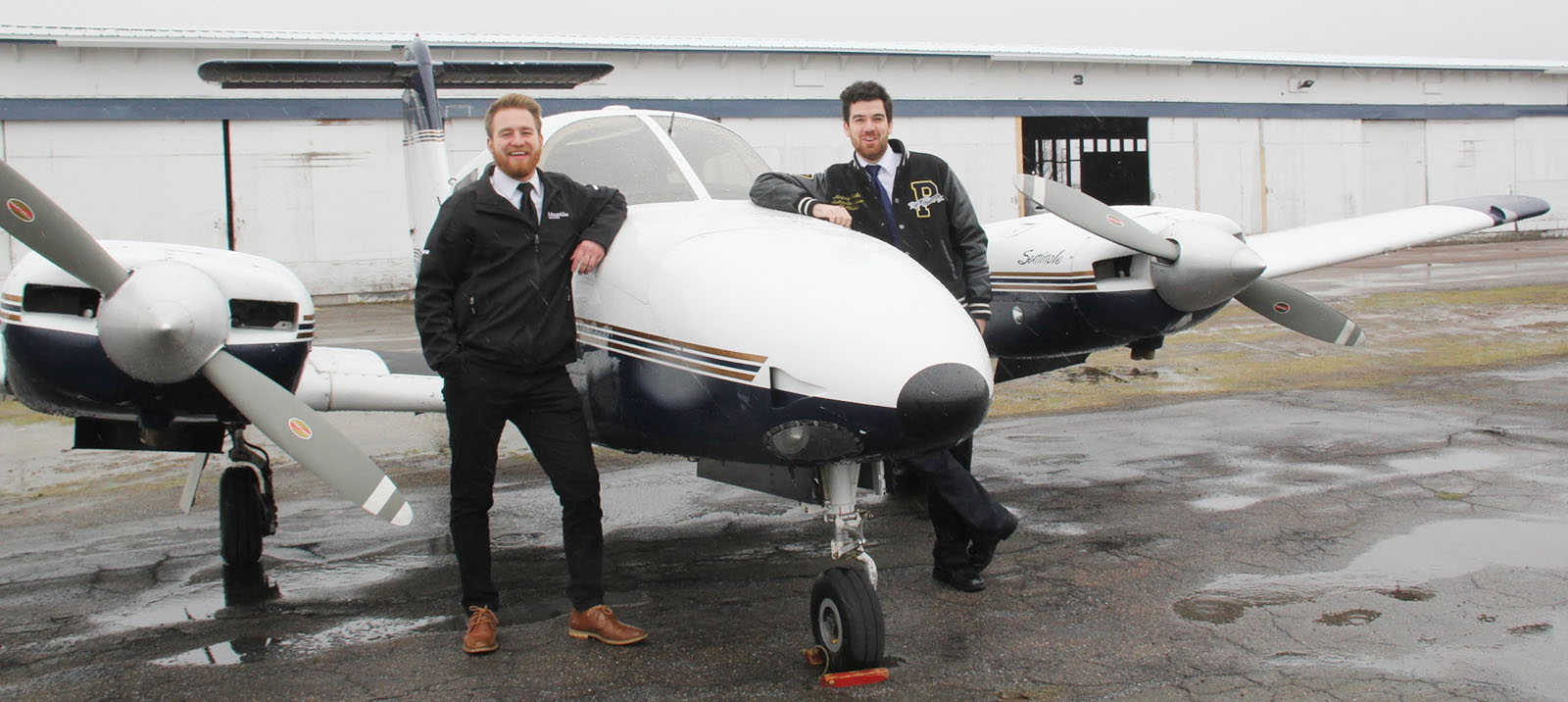
Tuition fees for Aviation students
In the first year of the program, the tuition fee is Mount Allison’s full-time undergraduate tuition fee only.
In years two to four, the tuition fee is a blend of Mount Allison and MFC Training tuition, which covers all ground school and flight training, in addition to the courses you will take at Mount Allison.
Visit tuition & fees for more detailed information.
Discovery flights and toursWant to find out more? Book a discovery flight and tour (pdf), offering a 30-minute flight over the City of Moncton. You will also meet flight instructors, tour the MFC Training facilities, and get answers to your questions about studying Aviation. |
/current-students/aviation-program
Admission Requirements
Academic Awards
Mount A is #2 in student awards
Maclean’s ranks Mount Allison second in student and faculty awards in its latest University Rankings. To date, 56 Mount Allison students have become Rhodes Scholars — one of the best per capita records in Canada.


